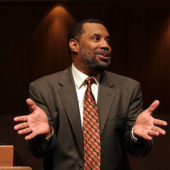I’m happy to say that my daughter was recently married. As a mom, it was one of the best days of my life (another was the day we adopted her from Korea). I prayed that I would enjoy not only the actual wedding day, but also the weeks leading up to it. As a counselor, I’ve heard too many horror stories of family meltdowns while planning for the perfect wedding. So, my daughter and I made a pact that we weren’t going to let that happen. And, fortunately, the process turned out to be wonderful.
My daughter’s wedding reminded me how you and I have incredible power to make a problem situation better just by the way we handle it. Don’t get me wrong, we can’t make a bad relationship good by ourselves. But, we can make it better by the way we respond when things go wrong.
In light of this truth, consider two things you can do to improve any relationship difficulty, whether husband and wife, parent and child, pastor and parishioner, or neighbor-to-neighbor.
Be Teachable
Most of us don’t respond well to criticism, correction, or confrontation. Usually, we get defensive and argumentative. But, what would it be like if you listened respectfully when talking with someone about a problem, instead of reacting defensively? How might the outcome change if you showed interest in the other person’s perspective?
When we’re teachable, we realize that we do not know it all or that we’re always right. We know that God has put certain people in our lives for a purpose, even if what they have to say to us is difficult to hear. For example, the Bible says, “Let a righteous man strike me – it is a kindness; let him rebuke me – it is oil on my head. My head will not refuse it.” (Psalm 141:5)
Make Honest Confession
Relationships deteriorate because problems are often avoided, blamed, or denied. We all know we mess up. So, when you blow it, be honest, and admit it.
Recently, I doubled-booked myself for an appointment, and two people arrived at the same time. I decided to admit my mistake, ask for forgiveness, and reschedule one of them. Initially, I was tempted to shift blame to my office manager, but I believe honestly admitting mistakes actually builds trust.
Sadly, many of us refuse to admit our mistakes or confess wrongdoing. Instead, we wait for the other person to do it first. We further damage our relationships by erecting walls of stubborn silence, pride, and shame. So, rather than honest confession, we make excuses. But, the result of our stubbornness is more brokenness and more separation.
Ask yourself if you need to tell someone, “I’m sorry…I was wrong.” What relationship might be healed if those words were said in a genuine way? Consider the freedom and trust that you could enjoy by taking that step today.
Image: Flickr



















